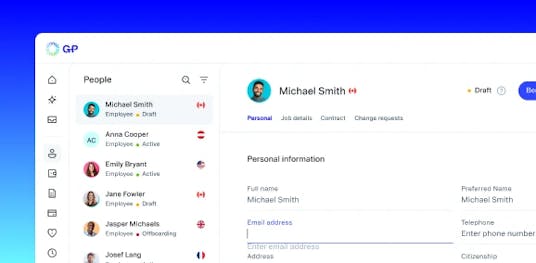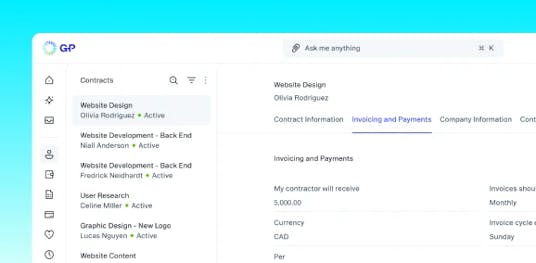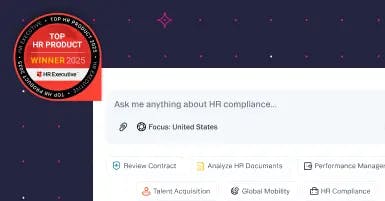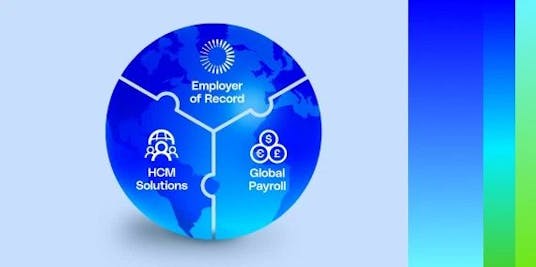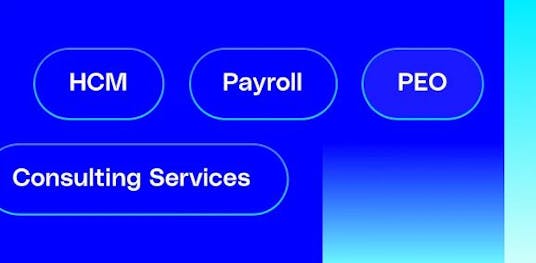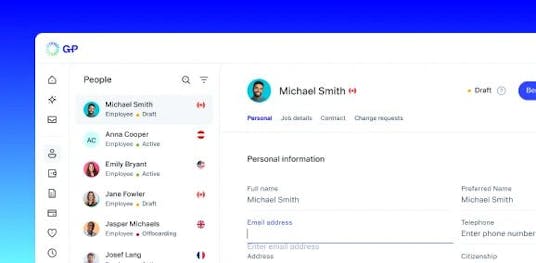Building a global workforce can be an effective business strategy. Productivity never stops when teams are spread across different time zones. But many companies find the challenges daunting. These include complying with local labor laws, tax regulations, and local employment practices.
Agents of record (AOR) and employers of record (EOR) are two ways of managing a global workforce. This guide will help you understand the differences between EOR and AOR platforms so you can choose the right approach for your needs.
What is an AOR?
An AOR manages a company's independent contractor relationships. This differs from an insurance agent of record, which represents a policyholder with their insurance company.
AOR services provide a framework for engaging contractors. AORs act as intermediaries to reduce compliance risks by handling administrative tasks.
The core functions of an AOR platform are:
-
Classification: An AOR provides guidance to help companies ensure proper contractor classification and adhere to local regulations. These classifications are based on the nature of the work, the level of control exerted by the company, and the contractor's autonomy. By keeping up with regulations, AOR services can help companies avoid worker misclassification. This protects your reputation and financial stability.
-
Contract management: AOR platforms help create compliant contracts and implement essential clauses related to intellectual property, confidentiality, and data protection. They draft, review, and manage agreements, ensuring all terms are valid and legally sound.
-
Setup: An AOR can support contractor setup by gathering each new contractor's personal details, bank information, tax reference numbers, background checks, and reference reviews.
-
Payment oversight: AOR services oversee invoicing, payment processing, currency conversions, and expense management. They help ensure contractors receive accurate, timely payments.
What is an EOR?

An EOR is the legal employer for a company's global workforce. This model allows you to enter new markets and manage distributed teams without establishing a local entity. EORs like G-P™ also have a Contractor offering for extra flexibility.
An EOR's key responsibilities include:
-
Managing payroll: EORs streamline global payroll processes, providing timely payments in local currencies. This involves calculating, remitting, and documenting payments, withholding taxes, and staying current on relevant employment and tax laws.
-
Administering benefits: EOR benefits administration services include tailoring compensation to local expectations, healthcare enrollment, and managing employer contributions.
-
Ensuring labor law compliance: EORs stay on top of evolving labor, employment, and tax regulations. Using an EOR is the simplest way to protect your company from costly mistakes.
-
Generating contracts: EORs generate compliant contracts and provide country-specific templates for easy customization.
Key differences between AORs and EORs
An EOR takes on employer responsibilities. An AOR helps manage contractor relationships, but companies retain liability.
AOR platforms are dedicated to managing contractor relationships, while EOR services are equipped to serve companies hiring full-time employees and/or contractors. This means an AOR can help scale project-based workforces, while an EOR is ideal for entering new markets where your company has long-term objectives.
As the legal employer, EORs assume a broader range of responsibilities and functions compared to an AOR. These include:
-
Ensuring labor law compliance
-
Administering benefits
-
Streamlining payments
You can't hire employees through an AOR. Companies wanting to hire in a new global location have to set up an entity or partner with an EOR.
EORs have a global entity infrastructure that you can use to hire employees or contractors quickly and compliantly.
AOR vs. EOR misconceptions
Here are common misconceptions worth clearing up before you choose between an AOR and an EOR.
1. EOR employees are separate from the core team
EOR employees are integrated into your company culture and operations. They attend meetings, follow your processes, and work under your leadership, just like any other team member. While the EOR handles administrative tasks like benefits and payroll administration, your company is responsible for workloads, performance, and daily operations.
2. Partnering with an EOR means giving up control over employment decisions
Companies partnering with an EOR retain control over employees' day-to-day work. Decisions around recruitment, promotion, and termination are up to you. EORs handle the legal and administrative responsibilities, so you can make employment decisions confidently.

3. EORs are only for international hiring
The most common reason companies partner with an EOR is when they want to hire in a new country but lack the legal presence and regulatory expertise. Some countries, including the U.S., have complex state-to-state variations in employment laws.
An EOR can streamline market access while ensuring compliance with municipal and state regulations. This makes EOR services useful for domestic growth as well as global scaling.
4. AOR services are only for insurance and benefits management
Some AOR services specialize in insurance policy or benefits management. Others have a broader scope of contractor services and can help with classification, contract management, and payment oversight.
5. An AOR absolves you of legal liabilities
An AOR can help with compliance in contractor relationships, but liability for noncompliance remains with the company. For example, an AOR can help reduce the risk of worker misclassification by advising you on local classification rules and how they apply to your company. However, your company — not the AOR — will be responsible for any mistakes. You may need to consider further measures to protect your company's reputation and assets.
EOR vs. AOR: Which one should you choose?

Whether your company chooses an EOR or AOR depends on your workforce needs, compliance requirements, and growth objectives.
If you're seeking fast and compliant global hiring for full-time employees and contractors, EORs offer significant advantages, including:
-
Rapid market entry: Working with an EOR is a fast, direct route to enter your target market. An EOR allows you to skip entity setup for immediate hiring.
-
Risk mitigation: An EOR offers risk mitigation by assuming the compliance responsibilities of an employer. This offers superior assurance when entering new and complex regulatory environments.
-
Streamlined operational focus: By managing a wider range of HR and administrative tasks, an EOR is the most effective approach for global team management. An EOR frees you to focus on core business activities.
-
Local expertise: EORs have deep local expertise regarding employment practices, market conditions, cultural nuances, and labor regulations.
-
Flexible growth: Using an EOR lets your company scale up or down, depending on strategic priorities, needs, and market fluctuations.
-
Payroll and benefits administration: From providing local benefits packages to managing payroll deductions and contributions, an EOR can help attract and retain top talent while ensuring compliance.
-
Resource optimization: An EOR removes the need for a local entity and streamlines every aspect of employment. This reduces initial expenses, so you can use these resources for profit-driving operations.
An EOR provides a more comprehensive solution for managing global teams and mitigating risks associated with global employment. EORs outperform AORs most when full-time employees play a major role in your growth strategy or you're navigating complex regulatory environments. An AOR can benefit businesses that rely mainly on independent contractors and already have a strong grasp of the new market's legal and employment landscape.
If you choose to use an EOR, look for one with established subsidiaries in your target locations and a strong compliance track record. Reviewing EOR industry awards can help you identify a provider you can trust to support your global hiring needs.
Why trust G-P

G-P was founded in 2012 and is the most experienced EOR in the industry. We offer the best EOR solutions and have helped hundreds of companies break down barriers to global business.
Our track record of customer success shows our commitment to best-in-class technology, support, and service. We're the top-ranked EOR among industry analysts, including:
-
NelsonHall: A four-time industry leader in their Global EOR Research
-
IEC: Employer of Record Industry Leader for the third consecutive year in 2025
-
QKS Group: Market leader in the 2025 SPARK Matrix™
We're also the proud owners of numerous G2 badges, including:

Build your global team with G-P
As the recognized leader in global employment, G-P helps companies of all sizes hire, onboard, and manage global teams in 180+ countries. Our industry-leading global employment products and EOR solutions are backed by the largest team of in-country HR, legal, and compliance experts.
Partnering with G-P is the simplest way to hire full-time employees and contractors, without setting up new entities.
Contact us to start building your global team today.
